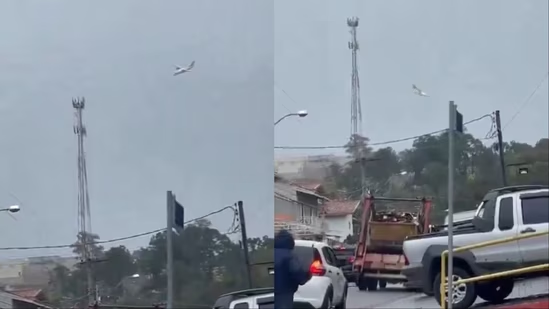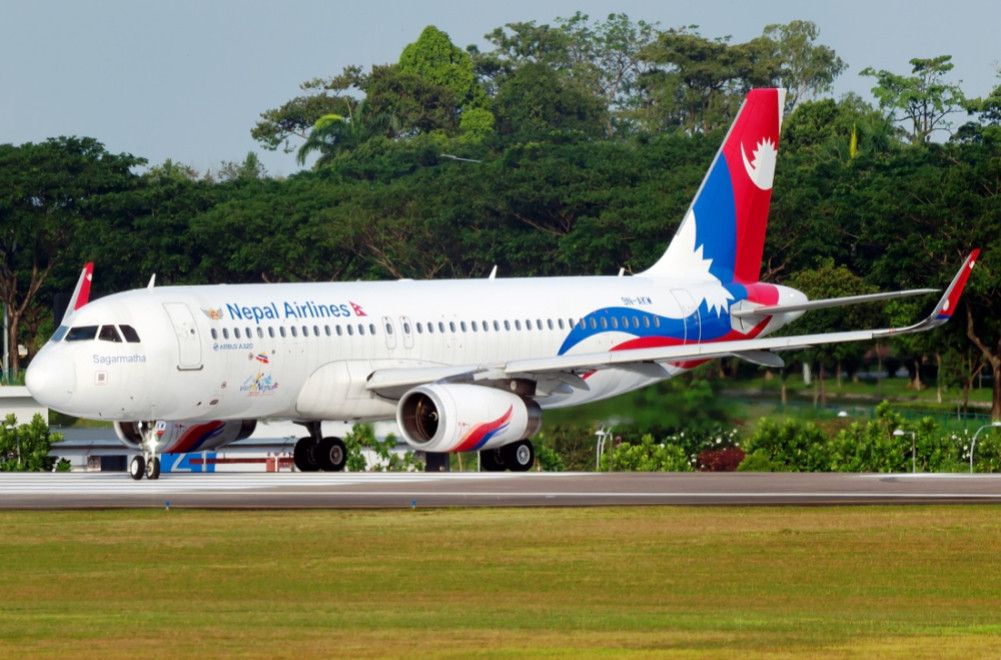A regional turboprop aircraft tragically crashed near São Paulo, Brazil, on Friday, resulting in the loss of all 61 lives on board, according to the airline.
The aircraft, operated by regional carrier Voepass, was en route to São Paulo’s international airport after departing from Cascavel, located in Paraná state. The crash occurred around 1:30 p.m. (1630 GMT) in Vinhedo, a town approximately 80 km (50 miles) northwest of São Paulo.
Footage shared on social media captured the ATR-72 aircraft spiraling uncontrollably before descending behind a grove of trees near residential areas, followed by a large cloud of black smoke.
Local resident Daniel de Lima recounted hearing a loud noise before witnessing the plane’s descent from his home in Vinhedo. “It was rotating in the air without moving forward,” he described. “Shortly after, it fell and exploded.”
Authorities confirmed that there were no survivors and that only one home in a nearby condominium was damaged, with no injuries reported among residents.

De Lima speculated that the pilot may have attempted to steer the aircraft away from a densely populated neighborhood nearby.
The cause of the crash remains unclear. However, the head of Brazil’s aviation accident investigation center, Cenipa, stated that the aircraft’s “black box,” containing voice recordings and flight data, has been recovered.
The weather at the time of the crash appeared clear, with forecasts predicting light rain and winds at 10 km per hour (6 mph).
John Hansman, an aeronautics expert from the Massachusetts Institute of Technology, reviewed some of the social media footage and suggested that an engine failure might have been mishandled by the crew, potentially leading to the loss of control.
John Cox, a U.S. aviation safety consultant and former pilot, pointed out the unusual behavior of the aircraft, as captured by flight data, noting that something “significant” must have occurred to cause the plane to spin out of control.

Cenipa head Marcelo Moreno cautioned that it is still too early to determine the exact cause of the crash, noting that the aircraft did not report an emergency to air traffic control before the crash.
Voepass, Brazil’s fourth-largest airline by market share, could not provide additional details on the cause of the crash. Initially, the airline reported 62 people on board, though local media reported that one passenger had missed the flight.
The aircraft carried 57 passengers and four crew members, according to Voepass.
ATR, the Franco-Italian manufacturer of the aircraft, which is co-owned by Airbus and Leonardo, stated that its specialists are fully engaged in the crash investigation.
French and Canadian investigators are expected to assist in the investigation, and Europe’s safety regulator has also offered technical support.
This crash marks Brazil’s deadliest aviation disaster since 2007, when 199 people were killed in a flight operated by TAM, now part of LATAM Airlines.





